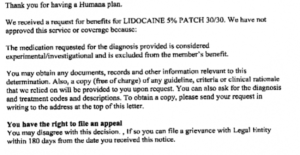Patients are amazing creatures. The current breed is hyperinformed on medical information and has an ever expanding reservoir of physician data to trove through. I’m not just referring to physician reviews on Angie’s list. Soon, the public will be encouraged to review our success and failure rates with respect to medical treatments, how much cash the drug companies grease us with, all disciplinary actions, comparison with peers, complication rates, medical malpractice entanglements and how much Medicare reimbursement we have received.
There will be published quality benchmarks on physicians so that the public can see how their physicians scored on these various quality measurements. I have opined throughout this blog that I feel that these measurements are tantamount to taurine excrement. Sadly, reimbursement will be tied to these results with physicians who don’t rate high enough having some of their income confiscated. Physicians who don’t make the grade may game the system to achieve higher grades, which has nothing to do with true medical quality. Is that what our patients want and deserve?
I was poised to begin a colonoscopy on an informed woman who asked me what my ADR was. I will presume that readers are not aware of what this means. Most physicians are likely also ignorant of what these letters stand for. In fact, I’ll bet a decent percentage of gastroenterologists are clueless here as well. The ADR refers to the Adenoma Detection Rate, which is one of the silly statistics that ‘experts’ feel separate skilled colonoscopists from pretenders. Adenomas are polyps which are precursors to colon cancer and are the target lesion for screening colonoscopies. When you consent to undergo a colonic delight at age 50, your gastroenterologist is seeking out adenomas, removing them before they can morph into a cancerous condition.
‘Experts’ advise that competent gastroenterologists should have an ADR of 25% in males and 15% in females who are undergoing screening colonoscopies. Lower rates, they claim, suggest sloppy or rushed examinations. Now, some colonoscopists are removing every pimple they find to make sure they will surpass these thresholds. Does this sound like good medicine?
Remember, colon polyps are surrogate markers. The true objective of colonoscopy is to prevent cancer, not finding small benign polyps. A patient should be more interested to know if their gastroenterologist prevents colon cancer, which is not that easy to measure. In contrast, measuring the ADR is simple, so it is used as a substitute for colon cancer prevention because it is so easy to do. Similarly, the statin drug companies boast about their cholesterol lowering properties, which is easy to measure. Cholesterol levels are also surrogate markers for what we should really care about – heart attacks and strokes – events that can’t be studied and measured as easily as simple blood test results. A surrogate marker ‘benefit’ may not lead to the desired medical outcome, despite claims that it will.





